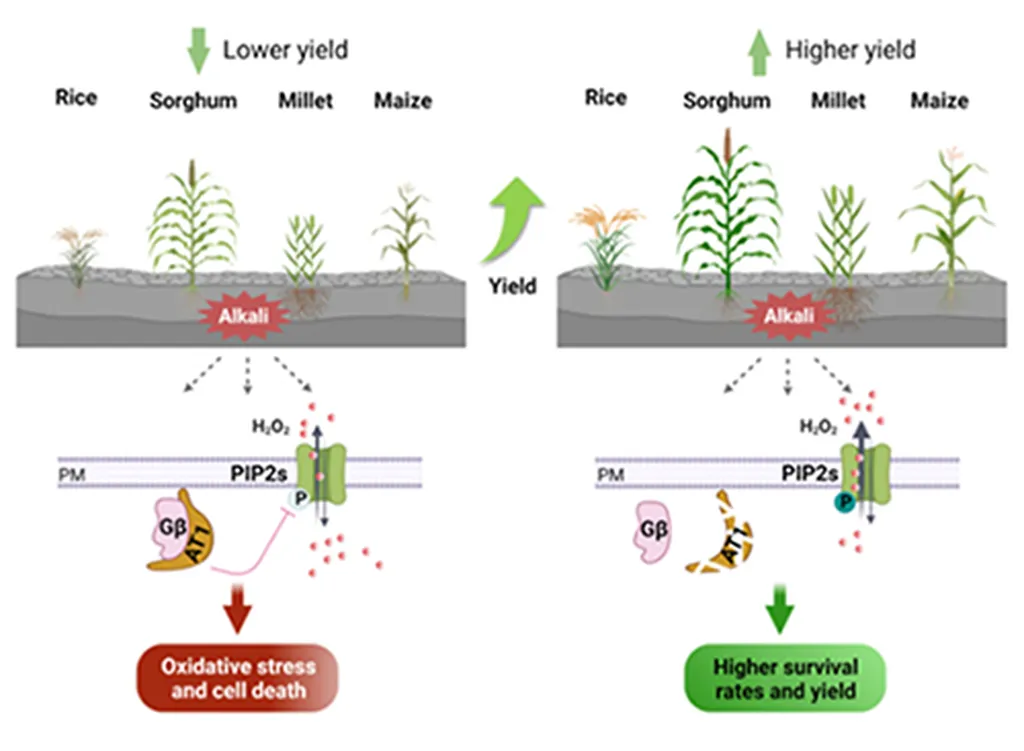In a groundbreaking study published in *Plant Stress*, researchers have uncovered a promising strategy to enhance salt tolerance in crops, offering a potential boon for agriculture in saline environments. The study, led by Freta Kirana Balladona of the Graduate Program of Translational Agricultural Sciences at National Cheng Kung University and Academia Sinica in Taiwan, explores the synergistic effects of two genes, SlbHLH053 and AtMSRB5, in transgenic tomatoes.
Salt stress is a significant challenge for global agriculture, affecting crop yield and productivity. The research team found that co-expressing SlbHLH053 and AtMSRB5 in tomato plants significantly improved their tolerance to high salt concentrations. “The combination of these two genes led to a greater tolerance to salt stress than either gene alone,” Balladona explained. This finding could revolutionize the way we approach crop resilience in saline soils, which are prevalent in many parts of the world.
SlbHLH053, a transcription factor localized in the nucleus, was found to play a crucial role in salt and iron deficiency stress responses. It regulates iron homeostasis and antioxidant pathways, essential for plant health under stress conditions. AtMSRB5, on the other hand, maintains ion balance, further enhancing salt tolerance. “The synergistic effect of these genes suggests a multifaceted approach to enhancing salt stress tolerance,” Balladona noted.
The transgenic tomatoes exhibited improved ion homeostasis, with reduced sodium and elevated potassium levels under salt stress. Additionally, the overexpression of these genes led to higher iron content and increased activity of antioxidant enzymes, such as ascorbate peroxidase and catalase. These enzymes are vital for combating oxidative stress, a common issue in plants under salt stress.
The implications for the agriculture sector are substantial. With salt-affected soils covering a significant portion of arable land worldwide, developing crops that can thrive in these conditions is crucial. “This research provides a significant advantage for developing resilient crops in challenging environments,” Balladona said. The findings could pave the way for the development of new crop varieties that are more resilient to salt stress, ultimately improving crop yields and food security.
The study also highlights the potential for further research into the mechanisms underlying salt tolerance. Understanding how these genes interact and contribute to stress tolerance could lead to the development of even more effective strategies for enhancing crop resilience. As the agriculture sector continues to face the challenges of climate change and increasing land degradation, such innovations are more important than ever.
In summary, the co-expression of SlbHLH053 and AtMSRB5 in transgenic tomatoes offers a promising approach to enhancing salt tolerance. This research, published in *Plant Stress* and led by Freta Kirana Balladona, could shape the future of agriculture, providing new tools for farmers to combat the effects of salt stress and improve crop productivity in challenging environments.

